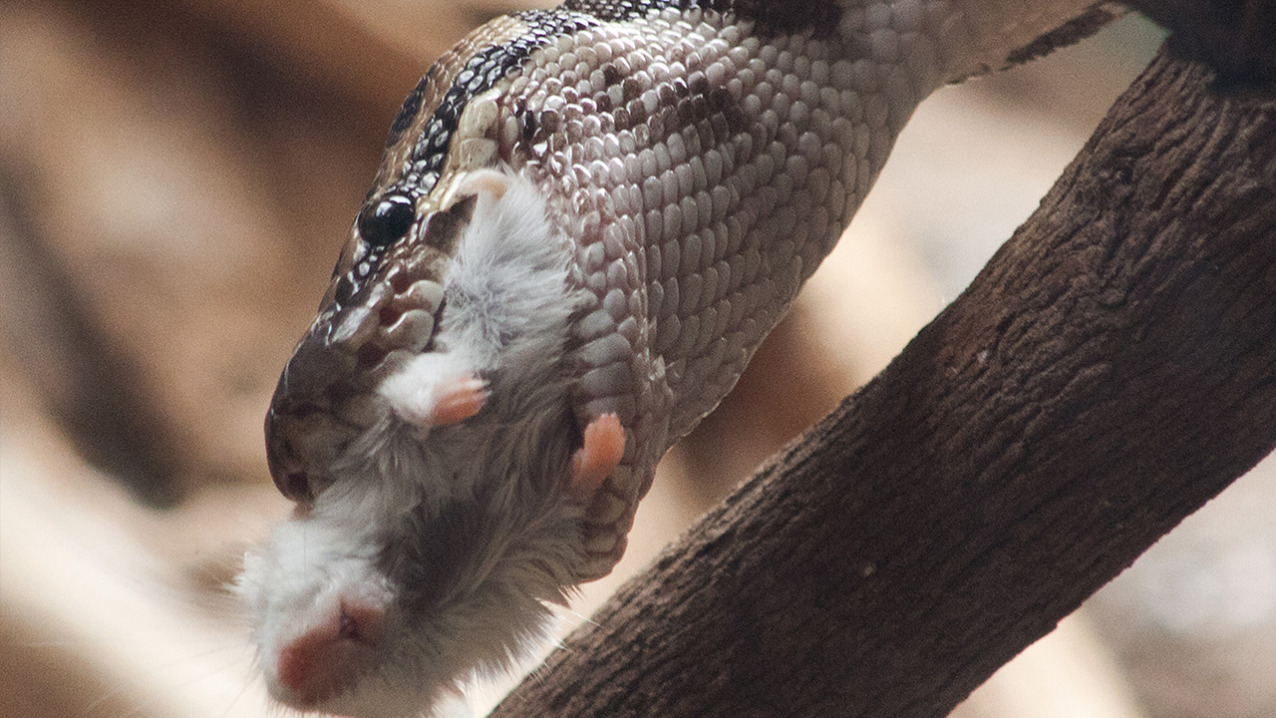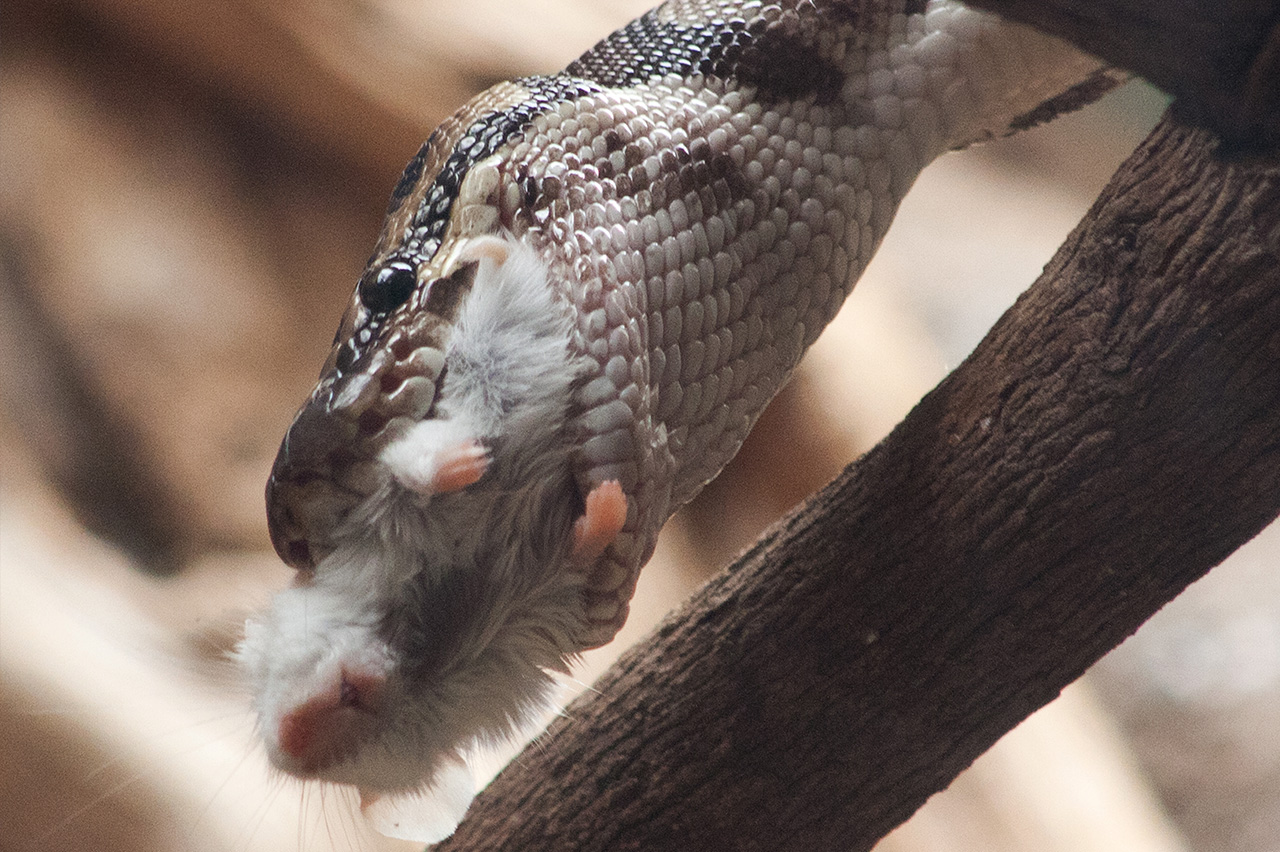Python regius
Ball Python
About Me
Scientific Name: Python regius
Description
Typically, Ball Pythons have white bellies and lightbrown backs, broken by darker brown. They grow to 3-4 feet in length and adult female Ball Pythons are larger than males, possessing longer jaws.
Typically, Ball Pythons have white bellies and lightbrown backs, broken by darker brown. They grow to 3-4 feet in length and adult female Ball Pythons are larger than males, possessing longer jaws.
Ball Pythons hunt using a variety of senses, including sight, smell, and thermal imaging. Pits along their face allow them to track sources of body heat, while their forked tongues, in connection with a Jacobson’s Organ, allows them to track chemical trails left by prey. It is even believed that Ball Pythons’ vision can tract UV Light reflected by these same trails.
If threatened, they tend to bundle themselves into a protective ball with their head at the center; hence the common name of Ball Python.
Ball Pythons enjoy a wide range, from Senegal across west Africa, through Central Africal, and to Sudan and Uganda.
Females lay their eggs from mid-February to April, and will use their bodies to incubate their brood for about two months until they hatch. Although the young fend for themselves, they are noted to remain with the vicinity of their mother.
Like all snakes, Ball Pythons are carnivorous and take their prey via constriction—using their coils to cut off blood circulation until the prey looses consciousness. Their primary prey are terrestrial vertebrates; the majority of which are small mammals.
Ball Pythons are a species of Least Concern, owing to their wide range distribution. They are hunted as a source of meat and for the pet trade, however, they are also valued as control for rodent pests.
Our male Ball Python, Bounce, was donated to the Zoo by the Department of Agriculture, which found him in one of the amnesty bins at the Hilo Airport. He was left there by a former owner, as exotic reptiles such as snakes are illegal to own in Hawaii.
http://animaldiversity.org/accounts/Python_regius/
http://www.iucnredlist.org/details/177562/0
Other Reptiles
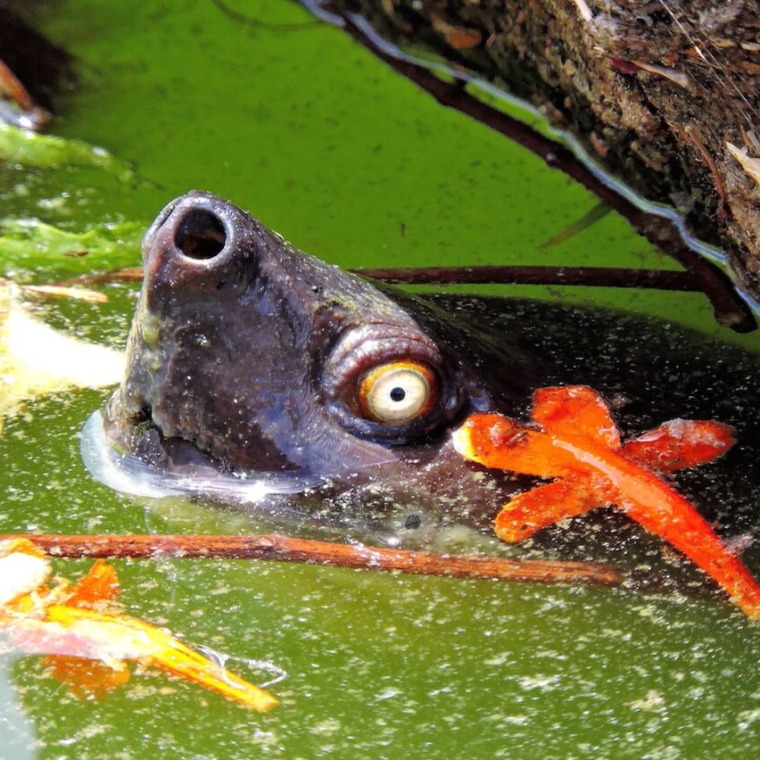
The last populations of Tutong are found in India, Indonesia, Bangaladesh, and Malaysia. It is extinct in its former range of Thailand, Myanmar, Vietnam, and Singapore.
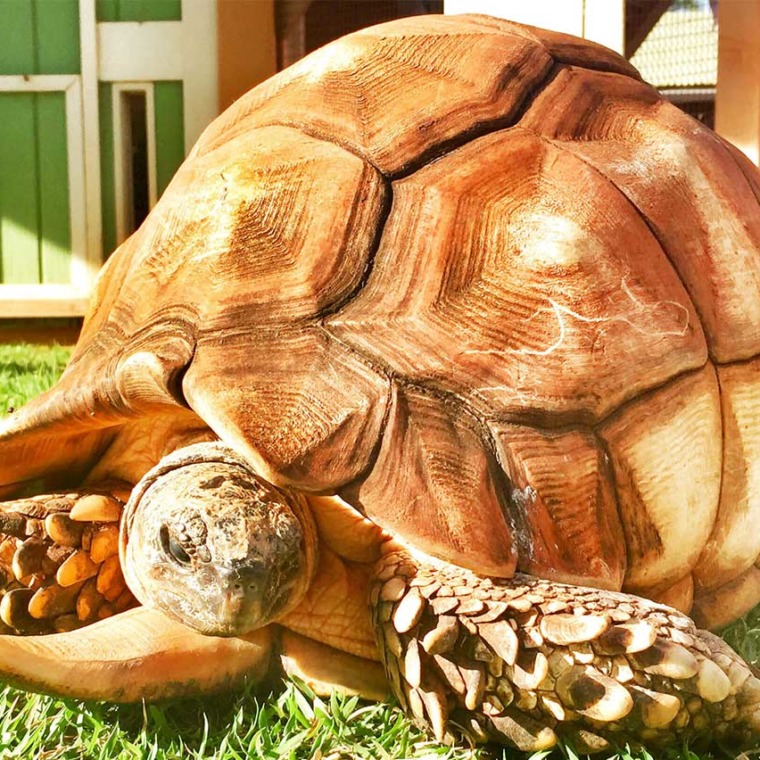
Inactive during cool, dry season (May to October). Does not dig burrows. Seeks protection in thickets and seeks shelter in surface litter. Forages during morning and late afternoon.

In the wild, this reptile is relegated to the extreme south and south-western portions of Madagascar. In recent times, they have also been introduced to the nearby island of Reunion.
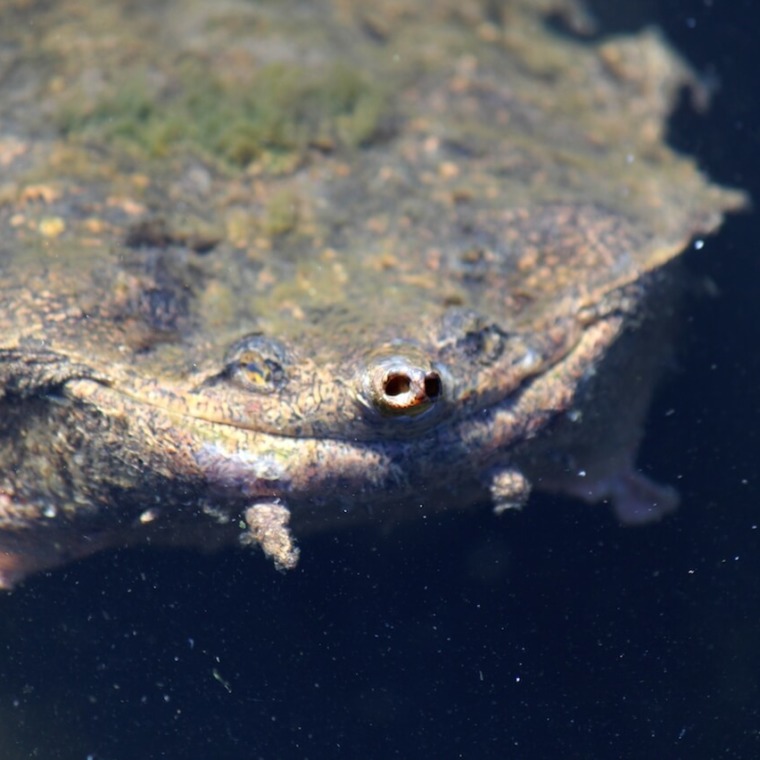
This species inhabits stagnant pools in Brazil and the Guianas and also in parts of the Amazon River and in Trinidad.
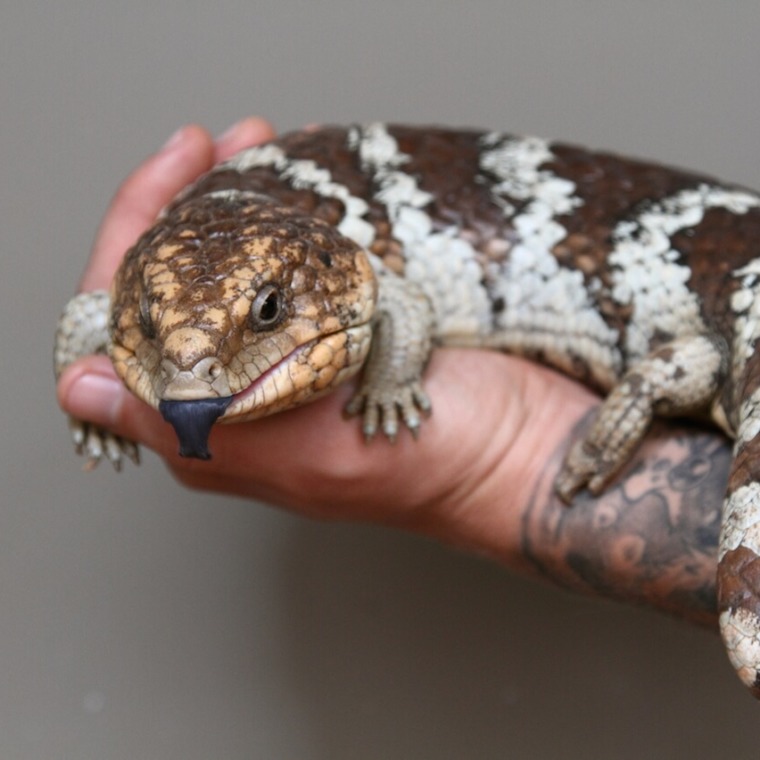
The Shingleback skink is found in southern and western Australia, in desert grassland areas or sandy dunes. Skinks are shy and secretive and seldom stray far from their shelter.


